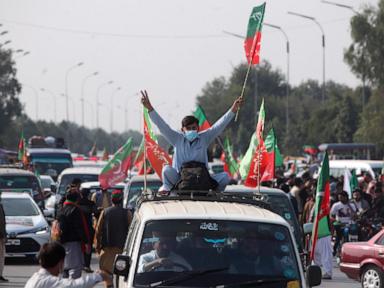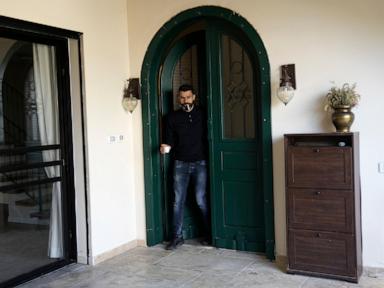ARTICLE AD BOX
BRITAIN could be set to launch Operation Meteoric and evacuate 10,000 citizens from Lebanon as Israel is poised to invade.
Defence chiefs are now moving 700 troops to Cyprus to join up with hundreds of British forces already on the Mediterranean island.
 Getty
Getty AFP
AFP Half a million Lebanese have fled their homes already, the country says
Half a million Lebanese have fled their homes already, the country says AFP or Licensors
AFP or Licensors Hezbollah fighters are preparing to defend against an Israeli invasion
Hezbollah fighters are preparing to defend against an Israeli invasion
They’re preparing for the possibility of conducting a larger operation extricating Brits than the evacuation of Kabul in 2021’s Operation Pitting.
Operation Meteoric could see amphibious troops land on the Lebanese shore and secure a safe zone for Brits to board Royal Navy ships.
Israel has been pounding Lebanon for the past few days with airstrikes to cripple terror group Hezbollah.
US officials believe Israel could be set to invade their northern neighbour as one expert says they seek to create a “death zone”.
The IDF said Wednesday afternoon it had “entered another phase” and enter into “manoeuvre and action”.
Two Royal Navy warships have been deployed to the area to join up with the vessels already based in Cyprus.
Colonel Hamish de Bretton-Gordon told The Sun much of how an evacuation played out depended on whether Britain had access to an airport.
He said: “If the airport is denied, if it’s attacked, then it would be a much more slow process of perhaps lifting people out in helicopters.
“In an ideal situation, RAF transport jets would be able to fly in and out of Beirut International Airport and extract people – you know, it’s a very short trip to Cyprus from Beirut, 20 minute flight, so that would be relatively straightforward.”
Chinook helicopters can only transport 40 people at a time, so UK forces may have to look at a Dunkirk-style water evacuation on ships.
That option, according to de Bretton-Gordon could see Royal Marines make amphibious landings on the Lebanon coast to secure an area and evacuate troops onto the ships.
He said: “The third option would be to really get people off the beaches into Navy ships.
“So it would be incredibly difficult. I would have to be under the cover of, I expect, a US and UK air defence network with jets covering the retreat.”
Operation Meteoric is a mission template and could have been deployed to evacuate Brits at other crunch points in the Middle East crisis.
 Alamy
Alamy
Defence Secretary John Healey confirmed the military plans last night as all-out war between Hezbollah and Israel loomed.
After chairing a COBRA meeting, he said: “Events in the past hours and days have demonstrated how volatile this situation is, which is why our message is clear, British nationals should leave now.
“We continue to urge all sides to step back from conflict to prevent further tragic loss of life.
“Our government is ensuring all preparations are in place to support British Nationals should the situation deteriorate.
“I want to thank the British personnel who are deploying in the region for their commitment and professionalism.”
Prime Minister Sir Keir Starmer said today: “I have a very important message for British nationals in Lebanon which is: the time to leave is now.
“The contingency plans are being ramped up but don’t wait for those, there are still commercial flights.
“It’s very important that they hear by message, which is to leave and leave immediately.”
 Getty
Getty Lebanese have fled the south of the country following the strikes
Lebanese have fled the south of the country following the strikesHe added last night: “More broadly, I am worried about the situation and I think we need to be clear we need de-escalation, we need a ceasefire, we need to pull back from the brink.”
The Lebanese government said nearly 500,000 people have been displaced since Israel ramped up its bombing campaign.
Nearly 600 people have been killed in the airstikes, including dozens of children.
The US currently has around 40,000 troops in the region.
Commercial airlines have also pulled out of flying to and form Beirut as the area becomes more dangerous.
The Foreign Office has been warning Brits that they should evacuate from the country for days.
Some British nationals in Lebanon have decided to remain there – including an unnamed charity worker who said he felt he could not abandon his colleagues.
He said: “I felt it would somehow be wrong to cut and run at the first moment when things go wrong.”
Pager and walkie-talkie strike

The spike in fighting follows the coordinated pager and walkie-talkie blitz last week with Israel sabotaging communications devices.
The attacks were aimed at Hezbollah and hit the terror group’s fighters and civilians in Lebanon and Syria.
The strikes, which hit Tuesday and Wednesday last week, killed at least 39 and left thousands more injured.
Doctors in Lebanon have been overwhelmed by casualties after two waves of blasts – with many left blinded.
Skilled physicians say they have never had to surgically remove more eyes before as Hezbollah’s boss labelled the strikes a possible “declaration of war” from Israel.
One of those injured was the Iranian envoy to the country who has reportedly lost an eye.
Hezbollah’s boss Hassan Nasrallah said the group intends to seek revenge for the attacks that “crossed over all the red lines” and will not stop until the war in Gaza ends.
Iranian foreign ministry spokesman Nasser Kanani said he “condemned the terrorist act of the Zionist regime… as an example of mass murder”.
Israel reportedly planted the explosives inside the pagers in a years’ long operation that involved firms in Taiwan and Hungary.
Iran’s Revolutionary Guard Corps has ordered all members to stop using any types of communication devices, Reuters reports.
 EPA
EPA Reuters
Reuters Smoke billows from the site of an Israeli airstrike in Marjayoun, near the Lebanon-Israel border
Smoke billows from the site of an Israeli airstrike in Marjayoun, near the Lebanon-Israel border.png)
 1 month ago
7
1 month ago
7








 English (US)
English (US)